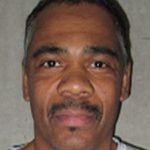
The United States Supreme Court has vacated the conviction of a Native American death-row prisoner in Oklahoma, giving dramatic effect to a sweeping new decision that affirmed the sovereignty of the Muscogee (Creek) Nation over tribal lands that span the eastern half of the state.
In an historic ruling in McGirt v. Oklahoma, the Court declared that Congress had never disestablished the Creek Reservation that was created by a series of treaties between 1832 and 1866 in the aftermath of the federal government’s forcible relocation of the Creek and four other Indian nations from their homes in Alabama and Georgia. The treaties promised the Creek Nation a “forever homeland” in the Indian Territories that subsequently became part of the state of Oklahoma. The McGirt decision affirmed that these lands were still “Indian Country,” as defined by federal law, within which Oklahoma lacked jurisdiction to attempt to try tribal members for serious offenses.
In a one-sentence per curiam decision that cited McGirt, the Court affirmed a ruling by the U.S. Court of Appeals for the Tenth Circuit that had voided Patrick Dwayne Murphy’s murder conviction and death sentence imposed in the Oklahoma state courts. On August 8, 2017, the Tenth Circuit granted Murphy habeas corpus relief, finding that the murder, which occurred in Henryetta, Oklahoma, had been committed on lands within the borders of the Creek Reservation. The Court wrote: “Because Mr. Murphy is an Indian and because the crime occurred in Indian country, the federal court has exclusive jurisdiction. Oklahoma lacked jurisdiction.”
Murphy (pictured below) still faces prosecution for murder in the federal courts, but federal prosecutors will not be able to seek the death penalty.

The Supreme Court’s ruling ended two years of procedural machinations in the case. The Court initially granted certiorari to review the case on May 21, 2018. However, Justice Neil Gorsuch, an anticipated swing vote on the issue, recused himself because of prior involvement in the case as a circuit court judge. After hearing argument on the case in its 2018 – 2019 term, the shorthanded court could not reach a decision and re-listed the case for the current term. While Murphy’s case was pending, the Court granted review in McGirt v. Oklahoma, a non-capital case that raised the same issue.
The McGirt Decision
Like Murphy, Jimcy McGirt is a member of the Muscogee (Creek) Nation. McGirt was convicted of rape in the Oklahoma state courts and challenged his conviction on jurisdictional grounds, saying the offense had occurred on tribal lands. The State of Oklahoma argued to the Court that it should uphold McGirt’s conviction because doing otherwise could result in challenges to thousands of state convictions.
Writing for a 5 – 4 majority, Justice Gorsuch concluded that almost half of Oklahoma, including much of the city of Tulsa, remains Indian Country. The Court found that the federal government had reserved land for the Muscogee (Creek) Nation through a series of treaties signed by the U.S. Government and the Creek Nation that was part of the “Trail of Tears,” the forced migration of tens of thousands of Native Americans from their ancestral lands to territory west of the Mississippi River.
The Court’s decision recognized that the United States has repeatedly violated treaty obligations to Native Americans. However, it said, this history of faithlessness does not mean that the state of Oklahoma can ignore treaties that reserved land for the Creek Nation. The Supreme Court has previously held that the U.S. can break treaties with Indian nations only through the explicit action of Congress to “disestablish” reserved lands. Justice Gorsuch wrote, “it’s no matter how many other promises to a tribe the federal government has already broken. If Congress wishes to break the promise of a reservation, it must say so.”
In response to arguments that the long-standing practice of prosecuting Native Americans in state court was proof that the reserved lands were “disestablished,” the Court recognized that “[u]nlawful acts, performed long enough and with sufficient vigor, are never enough to amend the law.” Because Congress never disestablished the Creek Nation’s reservation, much of Oklahoma remains Indian Country. Gorsuch wrote that the federal Major Crimes Act vests federal courts with exclusive jurisdiction over enumerated serious crimes committed by Indians in Indian Country, so the Oklahoma state courts had no authority to convict Jimcy McGirt.
The State of Oklahoma argued that recognizing the continued existence of the Creek Nation’s reservation could lead thousands of Native American defendants to challenge their state convictions. It also argued that a ruling in favor of tribal sovereignty would lead to chaos in a wide range of non-criminal matters. The Court rejected this argument, finding the scope of the potential remedy irrelevant. Justice Gorsuch noted that “the magnitude of a legal wrong is no reason to perpetuate it.”
Justice Gorsuch was joined by Justices Stephen Breyer, Ruth Bader Ginsburg, Elena Kagan, and Sonia Sotomayor in the McGirt v. Oklahoma majority. Chief Justice John Roberts and Justices Samuel Alito, Brett Kavanaugh, and Clarence Thomas dissented. The vote in Murphy’s case was 6 – 2, with Justices Thomas and Alito dissenting. Although he authored the opinion that ultimately entitled Murphy to relief, Justice Gorsuch in did not participate in deciding the case.
The Reaction From Native American Leaders
Jonodev Chaudhuri, Muscogee (Creek) Nation ambassador praised the Supreme Court’s decision, saying, “Many folks are in tears. Despite a history of many broken promises, as is true with many tribal nations, the citizens feel uplifted that for once the United States is being held to its promises.” Muscogee Principal Chief David Hill said, “This is a historic day … This is amazing. It’s never too late to make things right.”
Several Native American leaders and civil rights organizations joined in celebrating the decision. John Echohawk, Native American Rights Fund Executive Director stated, “In this case, the Muscogee (Creek) Nation had to fight long and hard to protect their homelands, which were promised in their treaty agreements with the United States. In holding the federal government to its treaty obligations, the U.S. Supreme Court put to rest what never should have been at question.”
Acee Agoyo, ‘On the far end of the Trail of Tears’: Nation’s highest court holds U.S. to promise in tribal treaty, Indianz.com, July 9, 2020; Kolby KickingWoman, Supreme Court ruling ‘reaffirmed’ sovereignty, Indian Country Today, July 9, 2020; ‘Good day to be Indigenous’: High court ruling cheered, Indian Country Today, July 9, 2020; Adam Liptak and Jack Healy, Supreme Court Rules Large Swath of Oklahoma Is Indian Reservation, New York Times, July 9, 2020; Harper Neidig, Supreme Court rules that large swath of Oklahoma belongs to Indian reservation, The Hill, July 9, 2020; Nick Martin, Neil Gorsuch Affirms That Treaties With Tribal Nations Are the Law, The New Republic, July 9, 2020.
Read the McGirt v. Oklahoma opinion here; read the Sharp v. Murphy opinion here.



